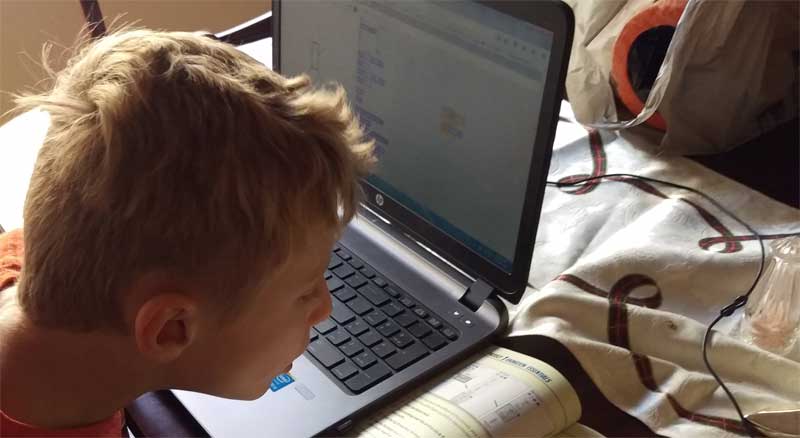Years ago I remember having a conversation with my uncle regarding my then-four year old son with autism. The talk focused on education and Matt’s potential – or perhaps ceiling – in terms of expectations. How far could he go? How soon would he get there? What’s the best way of teaching him? How difficult would the journey be?
As a teacher himself, he was in a good position to provide some spot-on insights and opinions.
Even at the time, we knew Matt had a light on upstairs; he was a smart kid. His overall thought process might be different than others and the speed in which some of those thoughts traveled from his mind to his body might be a bit delayed, yet everyone from his teachers to his therapists and certainly my wife and I – all knew he was much closer to normal than not. (And yes, I understand that normal might not be the right word to use there…)
Yet that’s not a guarantee of success nor does it translate into being out of the proverbial woods when it comes to his academic and personal growth. With autism, there are too many unknowns and for every feel-good success story, there are many, MANY, more who fall the other way.
Still, I asked my uncle something to the effect of: Would it be better for Matt to be a smart kid in his special needs class or struggle to stay afloat in a regular classroom?
He and I were in agreement. It’s better to be the kid who struggles in a regular classroom.
Over the last few years, we’ve seen Matt go from spending 20% of his time in a mainstream classroom to about 80% today. And though we expect the occasional set back, the goal next year, is 100% immersion.
And trust me: that’s a great thing! It’s a testament to just how hard that kid has worked to be treated the same as everyone else. It’s what my wife and I have prayed and dreamed for for years.
But now he’s also heading into the last part of 4th grade in a position of playing catch up to his friends and peers. He’s behind the proverbial 8-ball. Despite wanting a regular report card and despite wanting to take the same social studies, music and history classes – the bottom line is that he’s not at the same level as everyone else; he hasn’t been taught everything that everyone has to this point and it’s going to take a lot of extra work to catch up.
Plus, he still has autism.
All of which help explain some of the grades he’s been receiving on in-class assignments.

That said, we’re not worried about it right now. This is his first real exposure to a regular grading system. His workload has (probably) doubled and the time needed to stay focused and on-task has increased as well.
That’s a lot to ask of a kid and that’s just in the last month! He needs time to understand, and adjust to, the increased responsibilities and expectations.
Of course, we don’t want Matt to be a C or D student. He has too much going on in that mind of his and for those that truly know him, we all understand he can be better than that.
Too often I remember where he was and how far he’s come. The hours of speech and occupational therapies. The near-endless patience shown by so many teachers and aides. Nights of homework taking an hour instead of 20-minutes.
That kid has too much potential and somehow, someway, someday – he’ll find a way to get it done.







